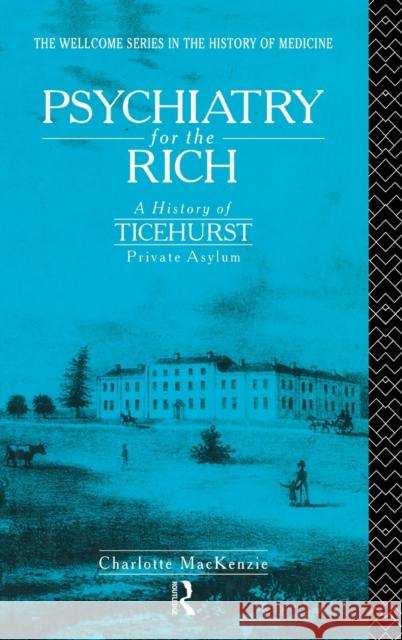Psychiatry for the Rich : A History of Ticehurst Private Asylum 1792-1917 » książka
Psychiatry for the Rich : A History of Ticehurst Private Asylum 1792-1917
ISBN-13: 9780415088916 / Angielski / Twarda / 1993 / 248 str.
Psychiatry for the Rich : A History of Ticehurst Private Asylum 1792-1917
ISBN-13: 9780415088916 / Angielski / Twarda / 1993 / 248 str.
(netto: 694,26 VAT: 5%)
Najniższa cena z 30 dni: 654,86 zł
ok. 16-18 dni roboczych.
Darmowa dostawa!
Through the work of historians since Foucault, the growth of public and voluntary institutions for the insane from the late eighteenth century has been associated with the bourgeoisie's desire for social order and social control in a period of rapid economic and political change. In addition, the importance of psychiatrists' quest for professional status and security has also been emphasised as a motor of institutional proliferation throughout the nineteenth century.
However, as Charlotte MacKenzie points out, neither of these models is easily applicable to the development of the private sector. "Psychiatry for the Rich" seeks to develop alternative explanations for this development in the trade in lunacy. She explores the way private asylum proprietors sought to develop and maintain a share of the market in mental health care, and how the families of patients were themselves deeply involved in the decisions about care, treatment and referral.
"Psychiatry for the Rich" reconstructs middle and upper class attitudes to mental disorder, certification and confinement, as well as their changing evaluation of care. Through a detailed history of the asylum at Ticehurst in Sussex, Charlotte MacKenzie explores the consumer revolution which stimulated the proliferation of madhouses.
She includes accounts of patients' own experiences at Ticehurst and discusses the changing developments at the asylum through the course of the nineteenth century amidst changes in therapeutic regimen and calls for lunacy reform. "Psychiatry for the Rich" is the most revealing of accounts of the trade in lunacy in the nineteenth century.











